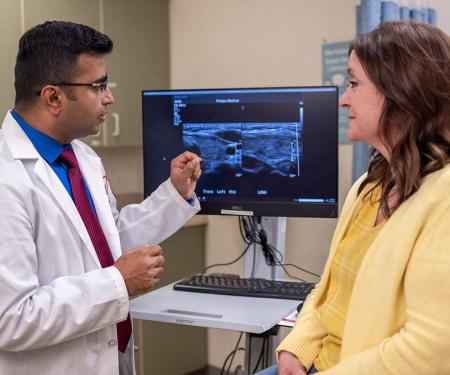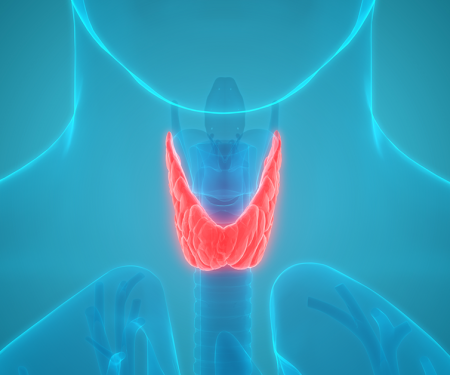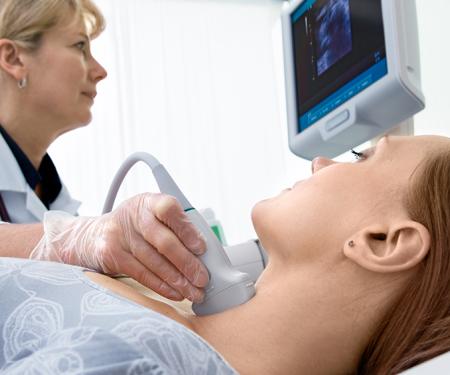Once a tumor has been identified, a biopsy is necessary to obtain a tissue sample, which is required in order to make a diagnosis and to determine the cancer staging. In a traditional core needle biopsy, a fine needle to collect a number of tissue samples, which are then examined for cell abnormalities that are a sign of cancer. Fox Chase radiologists specialize in performing image-guided biopsies. Using ultrasound, CT or MRI guidance, radiologists can sample even small lesions or lesions that are difficult to access by other means, as well as biopsies on patients with complicating medical factors. All biopsies performed at Fox Chase are minimally invasive.
Fox Chase has a thoughtful diagnostic approach with a focus on multidisciplinary evaluation to ensure that patients understand their diagnosis as well as their treatment options.
Accurate diagnosis is essential to choosing the best treatment for your type and stage of thyroid cancer. It begins with an appointment with one of our nationally recognized endocrinologists. We know that not every patient needs surgery and an initial meeting with an endocrinologist helps our team determine the best treatment plan.
In some cases, your endocrinologist may recommend a biopsy. At Fox Chase, doctors often coordinate it so that patients can come in for their first appointment and get their biopsy on the same day, reducing wait time and the nerves that can come with waiting for a test result.
Only about five to 10 percent of biopsies come back as suspicious or malignant, and require surgery, while about 70 percent come back as benign. The rest fall into a third category, endocrinologists refer to as “indeterminate.”
And while common practice used to be that this group would be automatically referred to surgery, molecular testing has made it so doctors can better determine if surgery is necessary. Now, only about half of the people with indeterminate results need to have surgery.
The Fox Chase clinical team can diagnose thyroid problems ranging from benign conditions to the most complex thyroid cancers using state-of-the-art diagnostic testing, which may include:
- Endoscopy
- Ultrasound
- Molecular testing of the tumor
- Video swallowing evaluation
- Digital video stroboscopy
- Fiberoptic endoscopic evaluation of swallowing (FEES)
- CT scan
- MRI
- Physical exam
- Blood tests
- Ultrasound imaging
- Thyroid scan
- Fine Needle Aspiration (FNA) biopsy
Fox Chase Cancer Center radiologists and pathologists who specialize in head and neck diseases can diagnose the type and stage of thyroid cancer and determine whether it is invasive or non-invasive.



